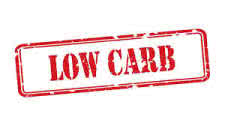The Low Carb Diet Controversy

Advanced Nutrition & Diet Science
If you want to lose body fat, should you follow a low-carbohydrate, high-fat diet or the more conventional low-fat, high-carb approach? Each diet has plenty of advocates. Those espousing the former say that this type of diet not only maximizes body fat loss but also promotes the
release of anabolic hormones such as growth hormone and testosterone. The low-carb, high-fat proponents say the fat-loss effect is promoted by controlling insulin. Those who advocate the high-carb approach not that dietary fat is the most concentrated source of calories (nine
calories per gram, as opposed to four calories per gram for both protein and carbs), and point out that a high-fat diet isn't conducive to cardiovascular health.
What's more, glucose is the preferred fuel of the body, particularly the brain, and without sufficient carb intake, your body can't adequately replenish depleted muscle and liver-glycogen stores. This is significant because muscle glycogen is the primary fuel for anaerobic
exercise, such as weightlifting. If we narrow the discussion exclusively to body fat loss, which diet is superior? According to a new study, neither. Reported in the International Journal of Obesity, the study compared a 25%-carb diet to a 45%-carb diet in 68 people for 12 weeks.
The results showed that both total weight loss and body fat loss were similar in each diet.
This isn't surprising because each diet, while differing in carb and fat content, contained the same number of calories. While advocates of the high-carb diet say that one of its advantages is protein-sparing action that preserves muscle under dieting conditions, the study didn't
bear this out. Although both groups consumed a higher- than-usual protein intake (one and four-tenths grams per kilogram of bodyweight), those consuming the low carb diet showed a 20% loss of lean mass. Members of the high-carb group didn't fare much better: Their total weight
loss included a 17% loss of muscle.
Both groups showed similar improvements in cholesterol and triglyceride levels, suggesting that contrary to what high-carb, low-fat proponents claim - weight loss is more important than the nutrient content in controlling these variables. Those on the low-carb diet showed more
improved blood-triglyceride levels, an effect attributed to the type of fat (monounsaturated) consumed in the diet.
Those consuming the low-carb diet also showed lower basal-insulin levels compared with the high-carb group. Once again, this wasn't due to the decreased carb intake; more likely, it resulted from higher monounsaturated-fat intake in the low-carb group. This type of fat, found
naturally in olive oil and many other foods, increases insulin sensitivity. In contrast, high saturated-fat diets decrease insulin sensitivity. This may explain why a high intake of saturated fat is more efficient in promoting body fat compared with other types of dietary fat.
This study shows that the important factor in weight loss isn't carbs but calories, However, there are other things to consider. Those consuming the low-carb diet showed consistently lower insulin 1evels. Insulin is' the most potent fat-producing hormone in the body, and keeping
it under control would also tend to control body fat - unless, of course, you take in more calories than you burn.
Because of the lowered insulin levels associated with low-carb consumption, the researchers who published this study suggest that low-carb diets "maybe more favorable in the long term." This is especially true if you limit your intake of saturated fat (found in foods such as meats,
cheese, butter, egg yolks and milk) to no more than 10% of your total, calorie consumption, with the remainder of your fat consumption derived from mono- unsaturated and polyunsaturated sources, such as olive and canola oil, and sunflower and safflower oil, respectively.